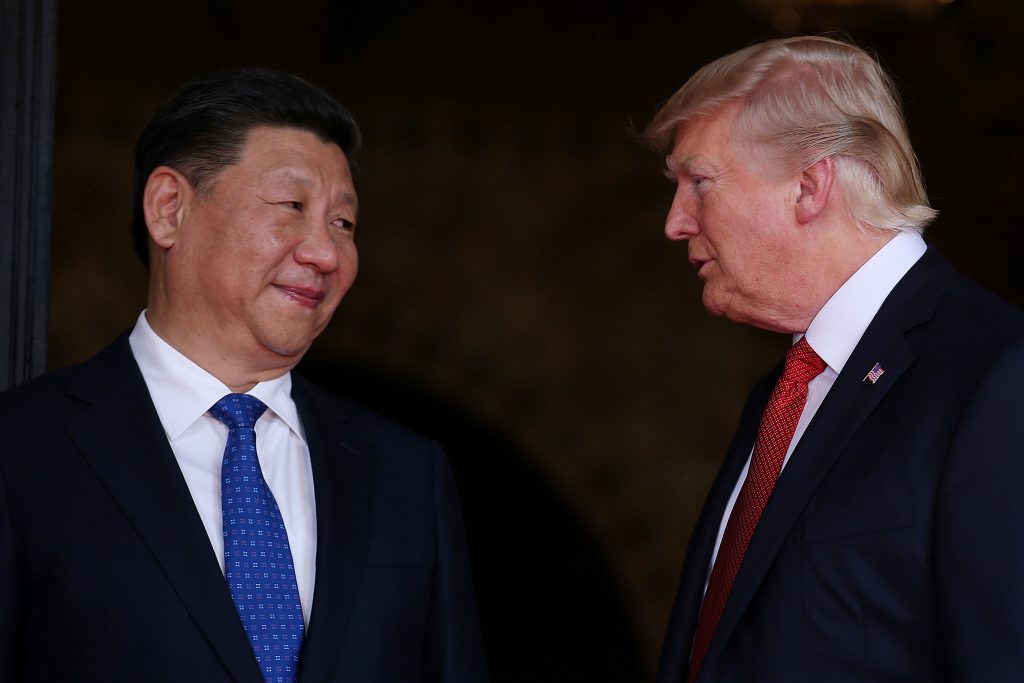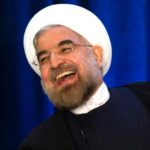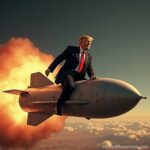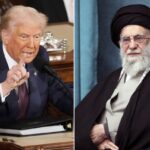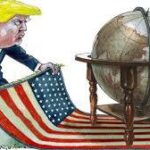China is the only competitor with the intent and growing capability to reshape the international military and global trade maps at America’s expense. According to the Defense Department, it plans to revise the international order in support of the its national interests.
But Trump has a better opportunity than he had during his first administration to contain China’s economic dominance, military buildup, adventurism in Southeast Asia and, yes, to negotiate much a better trade deal with Beijing.
That’s because China’s domestic economy can no longer generate enough consumption to absorb all China produces, so it needs to increase its exports to manage its trade balance. China represents 35 percent of the world’s production, but only 12 percent of its global consumption.
But China can’t increase its exports if other countries maintain or increase their production of export-worthy output to compete with China’s. This could be achieved by leveraging America’s buying power to purchase more from other countries and a cooperative strategy that enables more production of goods that compete with Chinese exports.
It should work. America’s trading partners recognize the opportunity arising from China’s growing dependence on exports. And, coupled with concerns about China’s dominance of global manufacturing supply chains, more countries are more likely than in 2017 to align their trade policies, such as tariffs and technology export controls, with Washington’s.
But the potential that Trump will bungle the opportunity is high due to his unqualified cabinet choices, disingenuous promises that that woo his followers, and his tendency to make decisions out of anger without the advice of experts.
Moreover, his strained relations with our allies and trading partners has diminished their trust in Trump and is likely generate self-protective moves such as building ties with Beijing to offset the risks of relying on Trump.
And it’s unlikely that Trump’s new cabinet picks will suggest a more accommodating approach to trading partners. Several of them prefer extreme and coercive policies to suppress China’s advances, so they are unlikely to push back against Trump’s aggressive tariffs, which alienate trading partners and intensify their distrust of Trump. They remember 2017 when Trump sprung his tariffs without alerting foreign trade partners or providing a vetted communication plan other than an email that hadn’t been approved by White House advisers.
Beijing will likely retaliate with their own tariffs and limiting production of components needed to manufacture U.S. products. The duel could intensify the existing trade war between the two powers and take its toll on the global economy as countries scramble to adopt dangerous protectionist policies of their own.
Obama and Biden tried to contain China through multilateral approaches like the Trans-Pacific Partnership (TPP) – a trade agreement with eleven pacific rim countries that excluded China. It eliminated 18,000 tariffs on made-in-America exports, including every type of American-manufactured and most agricultural products. TPP also provided for stronger labor standards in Asia and environmental protections that put state-owned enterprises on a level playing field with U.S. businesses, particularly small businesses that make up 98 percent of U.S. exporters.
But Trump took a more ego-generated I’m-in-control-now and voter-oriented rhetoric, and exited TPP, apparently without knowing what was in it. His exit sowed distrust in the region which, although being repaired by President Biden, will return now that Trump will be in charged.
So, although America has a rare opportunity to contain China with a trade strategy that depends on cooperation and trust with our allies and trading partners, Trump risks squandering it due to his unqualified cabinet choices, prioritizing personal gain over what’s good for America, relying on false rhetoric and unrealizable promises that, sadly, resonate with his supporters, and his tendency to make decisions without the advice of qualified, experienced experts with the integrity and courage to disagree with him.
So there’s much to be done to restore trust in Trump, including compromising, a change in his aggressive rhetoric and humility. Does the phrase “fat chance” come to mind?

